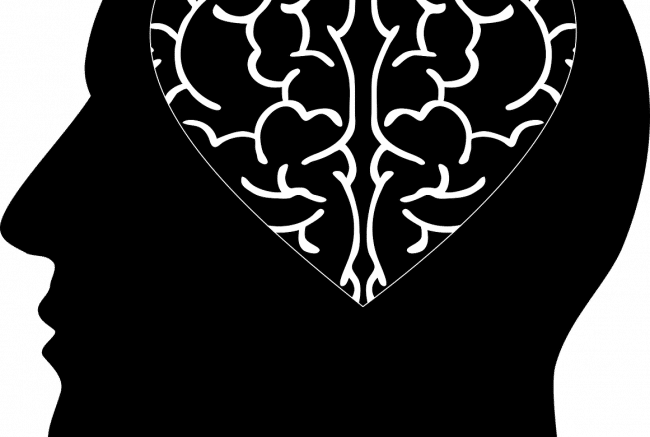Difference Between Mental and Emotional Health
Mental and emotional health are two terms that are often used interchangeably. Most people think they are the same, but the truth is that they have different functions.
Both of these intertwining aspects of our health are important for our overall well-being.
Awareness of how both of them function and relate to each other will help you manage your thoughts and emotions better, resulting in a better outlook in life.
What is mental health?
Your mental health is simply your cognition. Thought processes involving attention, information processing, decision-making, memory, comprehension, and reasoning are the associated activities that your brain goes through.
We can liken mental health to computer hardware responsible for making sure you function properly and that you store and process the necessary data needed to do so.
What is emotional health?
On the other hand, emotional health involves emotions. Activities like expressing and regulating feelings and emotions are what dictate the state of your emotional health.
Unlike mental health, emotional health deals with emotional intelligence and your capability to react within proportion. If mental health is the computer hardware, emotional health is then the software.
Sometimes, it malfunctions but it is usually temporary. With proper reprogramming and updating through necessary interventions, it can be fixed.
What is the difference between the two?
Mental health is thinking, while emotional health is expressing. These two help one another regulate your overall wellness, but one can be healthy while the other is not.
You may be able to do a great job at processing information but have a hard time dealing with your emotions. Likewise, you may be great at managing your feelings but have a skewed thought process.
At times, people tend to classify themselves as either a logical person, leaning towards thinking or an emotional person, leaning towards expressing and managing feelings.
Though there are personality types that fall under these categories, a healthy individual is a balance of both. Making your mental and emotional health work hand in hand with each other is a better goal.
We cannot expect to run on just data processing and reasoning as it would hinder us from connecting with other people and ourselves.
In the same way, we cannot let ourselves lose by allowing our reactions to get the better of us. Acting out purely from our emotional state could be detrimental as well.

What is the difference between mental and emotional health: How to Maintain Good Mental Health?
How do I maintain good mental health?
There are many reasons why we should make sure our mental health is in good condition.
Good cognitive functioning will not only help you in your everyday activities, but it will also help you avoid having mental breakdowns when adversities arise. Some things that you will get out of healthy mental functioning are the following:
- You easily succeed in doing everyday tasks.
- You become a generally more productive person.
- You will have the right amount and source of motivation to contribute.
- You will be able to set goals for yourself and be capable of working towards them.
- You will foster meaningful relationships.
- You will be able to adjust well to change and have the proper attitude to deal with challenges.
- You will find healthy ways to cope with stress.
Some challenges that come with achieving good mental health occasionally arrive at our doorstep, and you must check yourself once in a while if you are experiencing any symptoms of dwindling mental functioning. Some of the telltale signs are the following.
- You consistently have conflicts within your relationships.
- You feel physical pain without an apparent source.
- You experience a lot of mood changes or feel anxious, frightened, down, or angry often.
- You experience changes in appetite and/or sleeping patterns.
- You are drinking, smoking, or using recreational drugs a lot.
- You give a lot of thought to ending your life.
- You have a hard time succeeding in doing everyday tasks.
If some of these points sound familiar to you and your behavior, it is wise to get professional help so that problems can be identified and addressed.
Still, it is a good idea to try and prevent these from happening in the first place.
There are some practices that you can incorporate into your life so that you can maintain good mental health. Doing these simple things can change your lifestyle into a more proactive and positive one.
- Put in enough hours for sleep.
- Stay physically active.
- Meditate or keep a gratitude journal.
- Invest in relationships and create a good support system.
- Be kind and generous to other people. Lend a hand when you can.
- Don’t be hesitant to see a therapist if you need or want to
How do I maintain good emotional health?
Just like your mental health, there is also a need to take care of your emotional health. As we have discussed before, mental health and emotional health affect one another and should function together so they must be both in good shape.
Your emotional state is an extension of your mental state, so your emotional regulation reflects how your thoughts are doing as well.
Now that you have a good idea of what a mentally healthy person looks like, here are some things to look out for to know if you are an emotionally healthy fellow.
- You feel physically healthy.
- You find value in beauty and the arts.
- You express and regulate your feelings.
- You are self-aware and know when and how to release negative emotions.
- You intentionally practice self-care.
- You manage stress well and have healthy coping mechanisms.
- You seek out connections with other people.
Sometimes, being in a compromising emotional state comes with physiological symptoms like lethargy, headaches, lack of sleep, chest pain, high blood pressure, sexual problems, overeating or having a lack of appetite, and excessive sweating.
If you notice some of these occurring, it would be good to get yourself checked.
Physical problems are often a manifestation of stress and are sometimes also a sign of an emotional crisis.
To be emotionally healthy, you can also engage in small acts that create big ripples in your quality of life.
Remember that having meaningful connections with other people and knowing and accepting yourself are key points in achieving this ultimately.
Here are some tips on how to maintain good healthy emotional function.
- Practice mindfulness exercises.
- Exercise.
- Maintain a diary.
- Dedicate time to processing your feelings.
- Do not fret over things that are beyond your control.
- Surround yourself with a healthy social circle
Conclusion
Mental and emotional health are two aspects that are different but are very much related to one another.
As the two overlap in some aspects of our health, taking care of one of these is beneficial to the other. We should be able to distinguish one from the other, but also recognize that they help each other function.
If we are aware that there are two facets to consider, we can pinpoint problems easier and address them more appropriately.
References
Ivey, C. (2019, March 29). Please Don’t Say “Mental Health” When What You Mean Is “Emotional Health.” Psychreg. https://www.psychreg.org/dont-say-mental-health/
New Method Wellness. (2021, February 16). Dual Diagnosis Treatment Center. New Method Wellness. https://www.newmethodwellness.com/mental-health-vs-emotional-health/
Philpott, N. (2012, March 4). ***Mental Health VS. Emotional Health-Are they related? Www.selfgrowth.com. Samuels, H. (2020, August 31).
Emotional Health vs Mental Health. Dr. Howard C. Samuels.

Leezo is a registered psychologist and registered psychometician from the Philippines. In her clinical practice, she mainly uses Cognitive Behavioral Therapy, Solution-Focused Brief Therapy and Expressive Arts to treat a wide range of cases including but not limited to trauma, depression, anxiety, grief and burnout. Also a professor of psychology, Leezo teaches courses such as Experimental Psychology, Psychology of Learning and Psychological Assessment.
